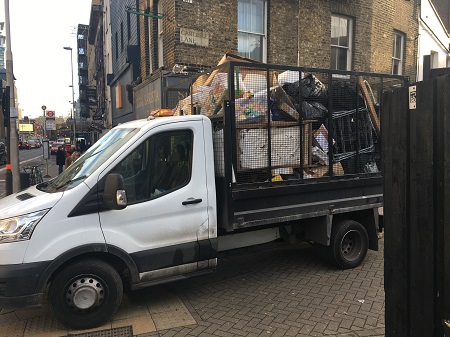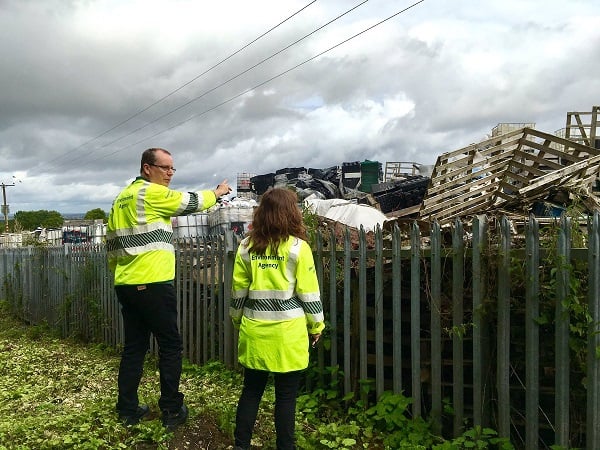OPINION: Waste crime is a blight on our society. It has devastating environmental and social impacts, as well as having a major impact on the public purse. In 2015, a conservative estimate placed the cost of waste crime at £600 million. A further estimation in 2018/19 measured the cost of waste crime to the public and private sector as high as £924 million. In less than five years, the economic cost of waste crime has almost doubled.
It is far harder to quantify the environmental impact waste crime has, but if the financial impact is proliferating at such an alarming rate, one can only imagine what the proportional environmental cost might be. These rapidly increasing costs emphasise the need to commit to serious action to tackle and bring an end to waste crime once and for all.

The Department for Environment, Food and Rural Affairs (Defra) has recently closed a series of consultations as part of its initiative to crack down on waste crime with more force and to bolster pre-existing measures. This proposed legislation represents a once-in-a-lifetime opportunity to create a hostile environment for waste criminals and empower the appropriate authorities with more powerful enforcement capacities, so waste criminals’ actions are properly punished.
Consultations
In attempts to combat waste crime, the Government has introduced measures such as extended producer responsibility (EPR). EPR requires information regarding the amounts and composition of packaging that are recycled and disposed of to be collected and reported. This initiative is intended to incentivise producers to reduce the amount of non-recyclable materials in circulation.

Defra’s consultation on the reform of the waste carrier, broker, and dealer registration system in England explores the idea of remedying the current self-regulatory and fragmented format of waste tracking. It has become evident the current system is inadequate to track the 200 million tonnes of waste produced in the UK each year. How it aims to do this is to require exporters of waste to fill in information regarding the details of the end of waste of products, the materials produced and the onward destination of these products. This would deter waste criminals by rendering it harder to exploit the system through misdescribing the materials being recycled.
Another element of this plan would be to record the relevant details of the waste in real time, requiring information to be entered and updated as waste is being moved from one person or place to another.
Waste tracking
Sweden, a country renowned for its efficient waste management model, provides an example of what effective waste tracking could look like. In 2021, Swedish supermarket chain Coop Sweden launched a partnership with recycling app Bower, which works by allowing consumers to collect points by scanning the barcodes of the packaging they are recycling. However, this example is primarily consumer-based, rather than waste sector-led.

Other examples of digital waste tracking systems record waste movements through a series of digital transactions. To reduce administrative complexities and to ensure the quality of the data certain systems attempt to make use of existing infrastructures.
However, the creation and implementation of real-time tracking poses a challenge, as there are currently no provisions in place for it. The benefits of live waste tracking might be outweighed by the costs to businesses, particularly if the charging is linked to individual movements. These difficulties may not be overcome by flexibility over the duration of a transitional period, even if it does take waste carriers’ concerns into account.
Regulation
Though Defra proposes further financial penalties and regulatory measures, we fear there is a danger this is still insufficient to supply a truly well-funded and efficient regulator with sufficient teeth to fully tackle the issue. The Government would need to fund these regulatory measures rather than share the cost with the waste industry so as not to unfairly disadvantage those companies that operate within the law.
The current proposals, though taking steps in the right direction, still risk failing to take into account the fact that the system does not appear to be set up to prevent incidents where criminals may control both ends of the waste chain. Almost 80% of MPs think larger fines are the solution to reducing litter – as opposed to 65% who believe it is criminal prosecutions that will prove to be the deterrent. However, waste crime is exactly that: a crime, and it should be punished with corresponding severity. This is a once-in-a-lifetime opportunity to eliminate waste crime once and for all, and we hope the Government gets it right.







Subscribe for free